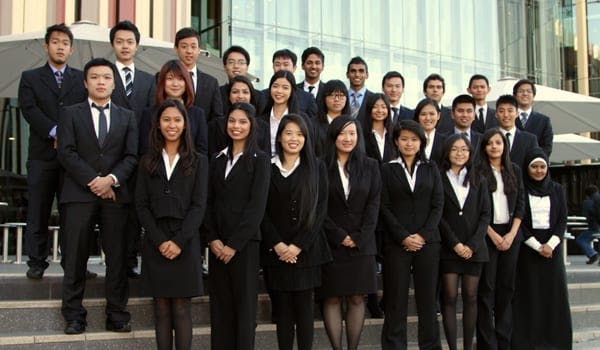When you think of a typical start-up, images of late nights in the garage or spare room quickly come to mind.
However, students at Australian universities are doing their part to change that, taking matters into their own hands and turning their campuses into hubs of entrepreneurial activity.
Incubate, a start-up accelerator program at the University of Sydney, recently announced its second incubation cycle, welcoming eight new start-ups into the program.
The first program of its kind, Incubate was co-founded by James Alexander, who believes universities should be doing more to encourage innovation and entrepreneurship in students.
“We saw a gap in the support provided on campus for entrepreneurial students, alumni, and researchers. We have a business planning competition, but that’s very much just about coming up with an interesting idea rather than something practical. That’s fine, but then when you had the people that actually wanted to start something and do it for real, there was no support,” Alexander said.
The program is funded by the University of Sydney Union and other businesses, and works by offering start-ups $5,000 in funding, a working space, access to a network of mentors, and exposure to potential investors.
Start-ups in the second cycle include a social network for beauty products, a career advice board, and a service offering car buyers the chance to have cars delivered right to their driveway for a test drive.
According to Alexander, working on a university campus has a variety of benefits.
“Being situated on campus is a great environment to be in. It’s very lively and you have lots of people around you, so it works very well if you’re hiring people. It’s also helpful in terms of increasing exposure for the start-ups,” he said.
The biggest item on Incubate’s agenda is looking into expanding the program into other universities across Australia.
“The entrepreneur support gap at unis is something you can observe at every university in Australia, not just ours. There’s definitely a need for a program like Incubate at other universities, and we’re currently investigating how that might look,” Alexander said.
“It’s just about identifying the right people to run it, and that’s where you fall down. You often have senior university admin or executives make decisions on who they think should run such programs, and those people might not understand the university community or what it takes to run a program like this.”
While Incubate encourages entrepreneurs to innovate, other university groups are encouraging business-minded students to think about social responsibility, and the positive impact businesses can have in their communities.
The Macquarie University branch of Enactus, a global organisation encouraging university students to “transform lives and shape a better, more sustainable word”, has gone from strength to strength in recent years.
Jacqueline Gerodias, vice-president of the group, believes students are inspired by the work the group does.
“What keeps us motivated is that we don’t just look at the situation in terms of trying to make a profit, it’s looking at how we can make really meaningful and measurable changes. We look at this in terms of not only enabling ourselves professionally but enabling our communities to accept change and be that change as well. That inspires us,” she said.
Enactus Macquarie’s projects include Mini Money Matters, a financial literacy program working with families that have young children to educate about the value of money and budgeting, and the Inspiring Leadership Program, a five-week workshop providing at-risk youths with job skills.
“It’s so different from a member’s university experience because it uses their theoretical knowledge of models of business and entrepreneurship and uses it in a more practical sense,” Gerodias said.
Just like Incubate sets entrepreneurs up for life outside university, Gerodias believes the experience students gain at Enactus will also come in handy when it comes to life after graduation.
“The idea of businesses having social responsibilities is so much more prevalent now than it was before. Organisations are recognising their communities and the importance of them to their cause, so it helps us transferring from university and the group here to working in an organisation,” she said.

